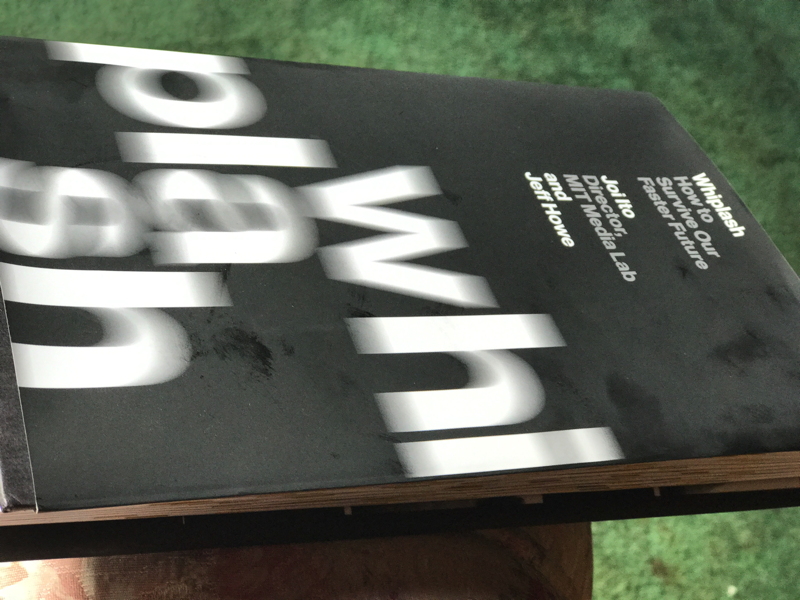My own book research has me reading even more than usual. Last week I received a new book that I had pre-ordered, Whiplash: How to Survive OurFaster Future, by Joi Ito and Jeff Howe. I set aside the several books I’m currently reading and finished this new one in just a few days.
For people who are familiar with Joi’s work, the ideas are familiar. But he and Jeff (with help from their researcher Chia Evers) have crafted a great read, well paced and full of engaging stories to illustrate the ideas.
These ideas will shake up your thinking. As they say in the introduction:
Our book proceeds from the conviction that any given period of human development is characterized by a set of commonly held systems of assumptions and beliefs. We’re not talking about opinions or ideologies. Beneath these lie another set of ideas, the assumptions that are unconscious, or more accurately, preconscious, in nature: strength is better than weakness; knowledge is better than ignorance; individual talent is more desirable than difference.
…
In other words this isn’t a book about what you know; it’s a book about what you _don’t know you know_, and why it’s important to question these problematic assumptions.
These assumptions are endemic in our view of the world, because they are our worldview. Whiplash makes the case for questioning our thinking, especially what’s built on industrial models of efficiency, specialization, time & distance, and scale. But Joi and Jeff step beyond common tropes of the internet age. It’s not just that the world is smaller and moving faster, but that there are surprising ramifications for how to organize and how to solve problems.
Joi has been talking about most of these ideas for years, but now he and Jeff have pulled them together into a compelling and enjoyable book. It’s a fun read, and I think you’ll find yourself pondering the implications on your work and your daily life.

